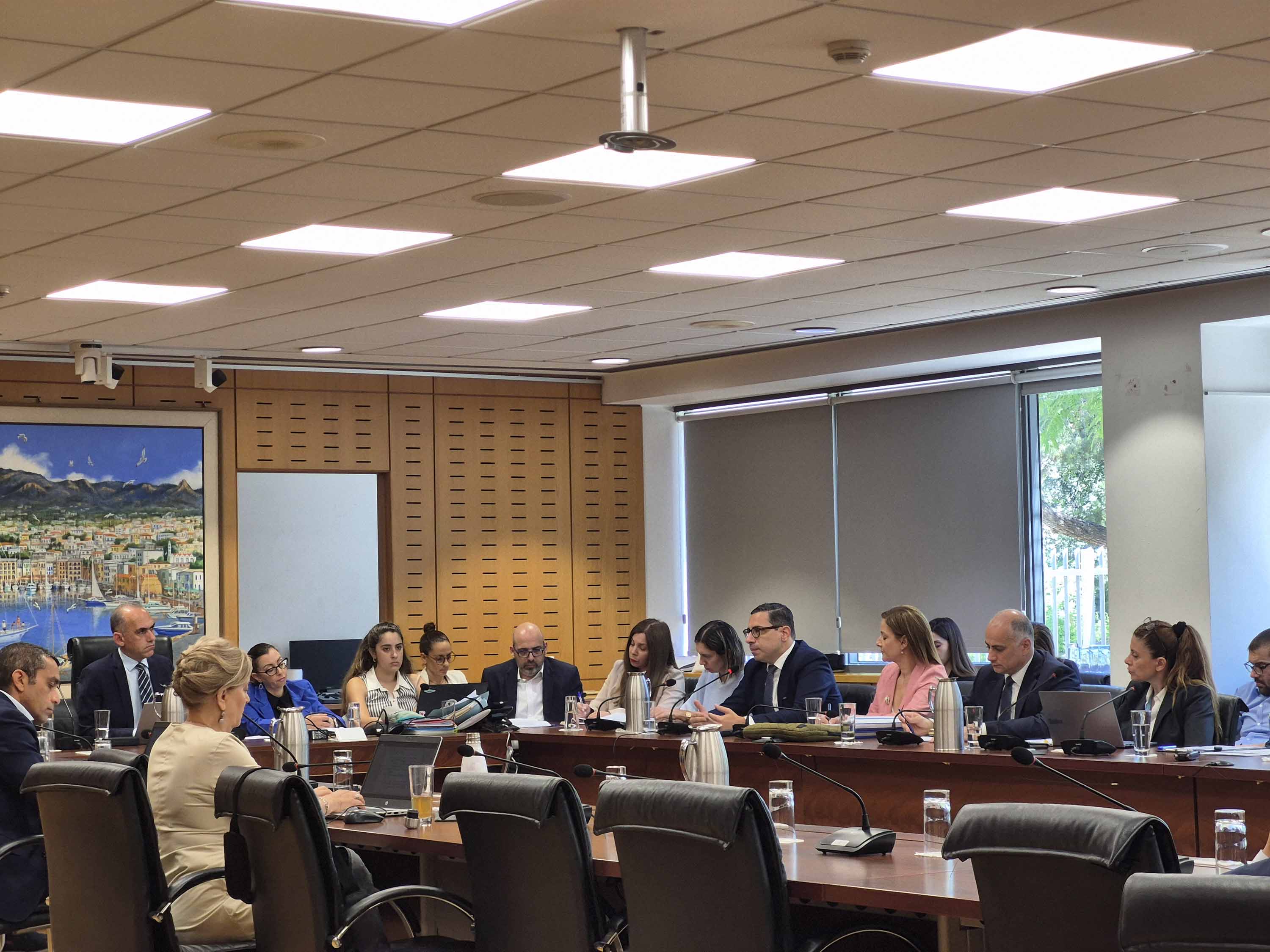Cyprus’ full accession to the Schengen area is a “national goal,” but there will be no concessions on the acquis communautaire or recognition of the ceasefire line as an external border, Foreign Minister Constantinos Kombos said on Friday.
Kombos was briefing MPs at the House foreign affairs committee during discussions on the creation of a new national visa information system (VIS), compatible with Schengen and linked to the EU’s central VIS, pending approval by the European Council.
He said that joining Schengen is “an obligation arising from our EU accession,” though the endeavour has been technically complex, which explains the previous delays in advancing efforts.
Now, he added, Cyprus has an opportunity to join the area – without ignoring the reality of the invasion and occupation.
On a technical level, he said, this was “an incredibly huge project” that demanded coordination between ministries and services.
Cyprus has been under evaluation since 2019, and proposals for compliance have already been submitted.
“Significant progress has been made,” he said, adding that the aim is to secure a positive recommendation from the European Commission. Political approval by all member states would then be required for accession.
Kombos said the technical part was very important as it “constitutes a security upgrade for the country” with new systems offering full access to crucial databases.
The foreign minister made special reference to the ceasefire line, telling MPs that “under no circumstances will we accept it to be considered an external border”.
However, under Cyprus’ EU accession agreement, implementation of the acquis communautaire in the north is suspended until a solution to the Cyprus problem is reached.
The Green Line Regulation also sets out the Republic’s responsibilities in maintaining effective controls, including against illegal immigration.
“It is not optional or by its own choice that the Republic of Cyprus carries out checks. We are accountable for this,” Kombos said, clarifying that this will continue after joining Schengen as well.
Kombos said Schengen accession would benefit the public, including Turkish Cypriots, by easing travel and boosting the economy – though he stressed the government has no intention of commercialising the Schengen zone.
Kombos pointed out that the government was striving to restore Cyprus’ name abroad.
Referring to the challenges Cyprus will face when the process reaches the European Council, Kombos said these were “the result of our own actions in the past, when we did not prioritise joining and now we are paying the price”.
Contacts with member states have already begun, particularly with those where there is concern about their likely stance.
Cyprus’ full accession is not only fair, but useful and beneficial for the EU itself, especially in the current geopolitical circumstances, Kombos said.
Cyprus’ full accession, Kombos said, is not only fair but also beneficial for the EU, especially given current geopolitical conditions. Nevertheless, he warned of unpredictable factors such as migration, with Cyprus being evaluated under worst-case scenarios. The foreign ministry is working hard to prove that the country meets all requirements.
Concluding his presentation, Kombos expressed hope that all political parties would support the Schengen bid.
Speaking to the press after the meeting, committee chairman and Disy MP Harris Georgiades said Schengen accession would bring significant benefits for Cypriots, Europeans, and the economy. He attributed the delayed start of the process to a lack of earlier prioritisation.
Akel MP Giorgos Loukaides voiced strong concerns about the ceasefire line becoming a ‘hard border’ and stressed that crossing points between the south and north must not be considered EU entry points.
He also warned against abuse of the ‘golden passport’ scheme after Schengen accession, noting that Akel has already submitted two bills to regulate the issue.
Diko MP Chrysis Pantelides spoke in favour of joining Schengen and called on all parties to vote it in.
Independent MP Alexandra Attalides expressed concern over the checks at crossing points, giving the impression one is entering another state. She also voiced concern over exploiting Schengen for ‘golden passports’.
The discussion of the government bill on Cyprus’ plan to join the Schengen zone – a target set by the government for some time next year – kicked off at the House foreign affairs committee on June 24.
Cyprus is one of just two EU member states left outside the Schengen zone.
Following the recent Schengen-accession of Bulgaria and Romania, Cyprus and Ireland remain the only EU member states outside the Schengen zone. In Cyprus, the main issue lies in the buffer zone, which serves as the de facto border and complicates matters.
Four non-EU members – Iceland, Liechtenstein, Norway, and Switzerland – are also Schengen members.






Click here to change your cookie preferences